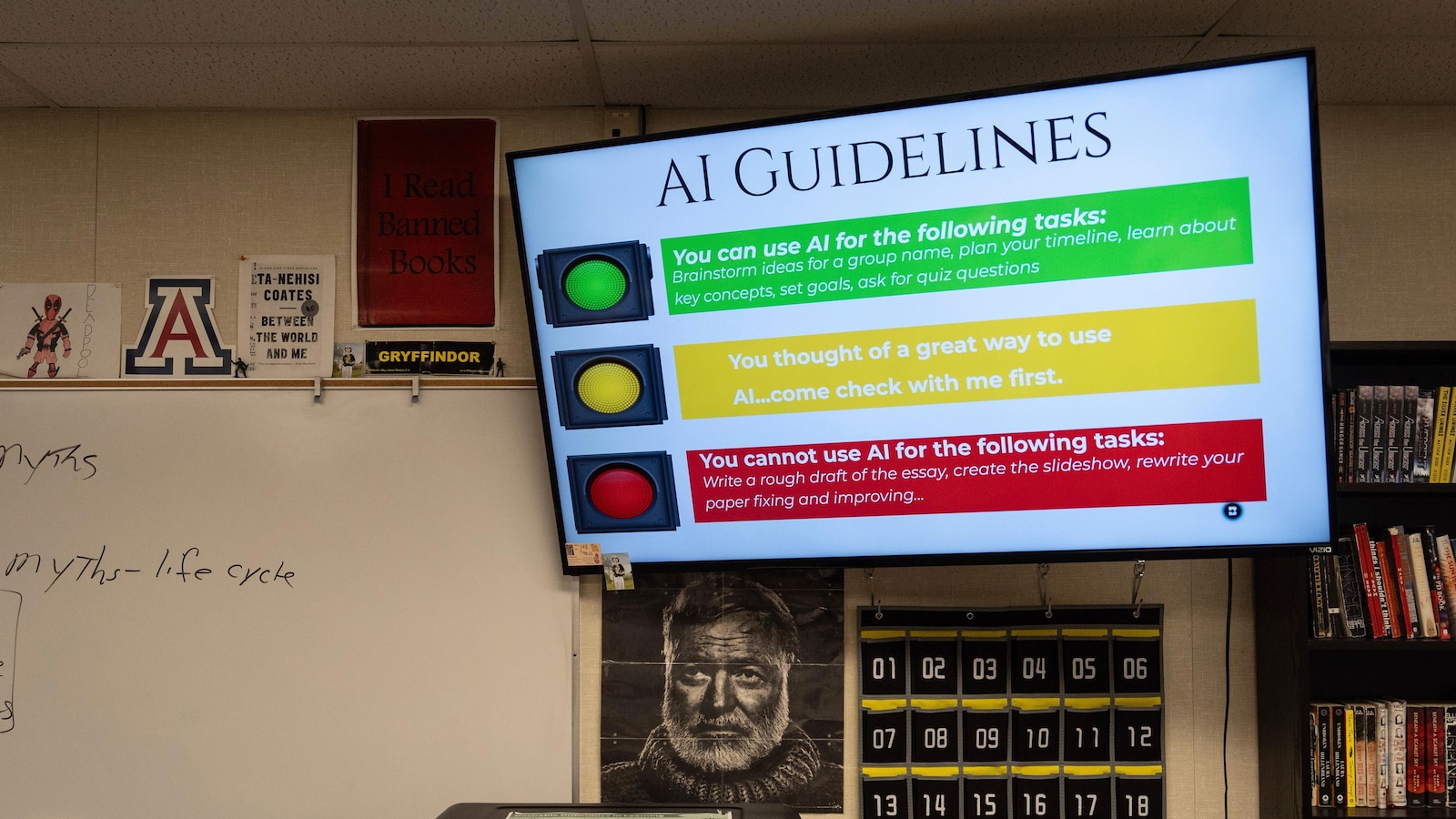As artificial intelligence continues to permeate various facets of modern life, its impact on education is becoming increasingly pronounced. Educators are expressing growing concerns over the potential for AI to facilitate academic dishonesty, prompting a reevaluation of traditional educational practices.
Redefining Academic Integrity
The advent of AI tools has led to a paradigm shift in how assignments such as take-home tests and essays are perceived. Once seen as reliable methods of assessing student understanding, these assignments are now viewed as potential avenues for cheating. In response, many educational institutions are pivoting towards in-class assessments, which are harder to manipulate using AI technologies.
However, this shift is not without its challenges. Schools are grappling with the task of establishing consistent policies that define what constitutes academic dishonesty in an era where AI can effortlessly generate human-like text. The lack of a unified approach leaves both educators and students in a precarious position, as they navigate the blurred lines between legitimate use of technology and cheating.
Integrating AI Literacy
In an effort to address these challenges, some schools are incorporating AI literacy into their curricula. This initiative aims to equip students with the knowledge to use AI responsibly and ethically, thereby fostering a deeper understanding of the technology's capabilities and limitations. By educating students on the ethical use of AI, educators hope to mitigate the risks associated with its misuse.
"The integration of AI literacy into education is essential. It not only prepares students for a future where AI is ubiquitous but also instills a sense of responsibility in its use," said Dr. Emily Carter, an education policy expert.
The Need for Clear Guidelines
Despite these efforts, the lack of clear guidelines remains a significant hurdle. Without a cohesive framework, schools risk falling into a patchwork of inconsistent policies that could undermine the integrity of the educational system. The need for comprehensive regulatory oversight is evident, as institutions strive to balance the benefits of AI with the imperative to maintain academic integrity.
As AI continues to reshape the educational landscape, the onus is on policymakers, educators, and technology developers to collaborate in crafting solutions that uphold the values of education while embracing the potential of technological advancements.
Originally published at https://abcnews.go.com/US/wireStory/ai-tools-reshape-education-schools-struggle-draw-line-125501970
ResearchWize Editorial Insight
The article highlights a critical issue at the intersection of education and technology: the disruptive impact of AI on academic integrity. For students and researchers, this is a wake-up call. As AI tools become more sophisticated, the traditional methods of assessment are increasingly vulnerable to manipulation. This shift demands a reevaluation of what constitutes fair and effective evaluation.
The push towards AI literacy in curricula is a strategic move. It prepares students not only to navigate a world where AI is ubiquitous but also to engage with it ethically. Researchers should note the long-term implications: as AI becomes integral to education, understanding its ethical use will be as crucial as mastering the technology itself.
However, the absence of clear, unified guidelines poses a systemic risk. Inconsistent policies across educational institutions could erode trust in academic credentials. This fragmentation underscores the need for a coordinated policy response. The big question remains: how can educational systems adapt to technological advancements without compromising their foundational values? The answers will shape the future of education and research.
Looking Ahead
1. Revolutionizing Curriculum Design
AI is not just a tool; it's a transformative force that will redefine what we teach and how we teach it. Curricula must evolve to include AI literacy as a core component, not just an add-on. Will current educational models adapt quickly enough, or will they become obsolete relics in the face of rapid technological advancement?
2. Dynamic Assessment Methods
Traditional assessments are crumbling under the weight of AI's capabilities. It's time for a systemic shift towards assessments that AI can't easily manipulate. Consider project-based learning and real-time problem-solving as alternatives. Are educators ready to abandon the safety of standardized tests for more dynamic, yet challenging, evaluation methods?
3. Policy and Regulation: A Race Against Time
If regulators lag, we risk a fragmented educational landscape where academic integrity is compromised. Policymakers must act swiftly to establish clear guidelines that define the ethical use of AI in education. What happens if they don't? The consequences could be dire, with inconsistent policies leading to confusion and unfair advantages.
4. Ethics and Responsibility as Cornerstones
As students become more adept at using AI, instilling a sense of ethical responsibility becomes paramount. AI should not only be seen as a tool for efficiency but also as a subject of moral consideration. How do we ensure that the next generation wields AI with a conscience?
5. Collaborative Innovation
6. Preparing for Unforeseen Challenges
As AI continues to evolve, so too will the challenges it presents. Schools must be agile, ready to pivot as new issues arise. This requires a culture of continuous learning and adaptation. Are educational institutions prepared to embrace this mindset, or will they be left scrambling to catch up?
In conclusion, the integration of AI into education is not just an opportunity; it's an imperative. The decisions we make today will shape the educational landscape of tomorrow. The question remains: will we steer this transformation towards a future of equitable and ethical learning, or will we let it spiral into chaos?
Originally reported by https://abcnews.go.com/US/wireStory/ai-tools-reshape-education-schools-struggle-draw-line-125501970.
Related Articles
- Squirrel Ai Secures 5 Papers at ACL 2025, Highlighting Breakthrough in AI Education
- Wrtn Technologies integrates LG’s Exaone for AI education
- OpenAI launches $50M grant program to help fund academic research
📌 Take the Next Step with ResearchWize
Want to supercharge your studying with AI? Install the ResearchWize browser extension today and unlock powerful tools for summaries, citations, and research organization.
Not sure yet? Learn more about how ResearchWize helps students succeed.

